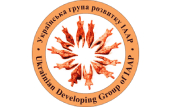Since February 2022, psychologists in Ukraine have been working under the extreme stress of full-scale war, with a heavy workload. Specialists face specific questions: how to support themselves, where to find resources to care for others, how to endure constant shelling and bombing, and how to continue providing quality support to children and adults.
On the one hand, we had experience working since 2014, specific knowledge of crisis work, and good methods we knew how to apply. We had already worked on becoming aware of changes in our analytical position, on flexibility, adaptation, and a certain fluidity between the immediacy of crisis intervention and the slowness of analytical work.
However, the scale of the disaster brought about by the war and the amount of traumatic material that has to be processed every day still require psychologists and psychotherapists to be open to both the complex experience of war and the new experience of healing. Therefore, training is an extraordinary resource — a place of recovery and rest, a place of creative growth, and a space for professionals to reflect on traumatic experiences.
So, in early April 2022, a month after the start of the full-scale invasion, a project with Mythodrama began under the leadership of Alan Guggenbuhl. For which we are sincerely grateful. During the first six months of the war, we met every week. The work began with sharing and stabilisation. Alan always found words of support. Then came training, working with stories and drawings, searching for resources and meaning. This supported our small group.
After a while, clinical supervision was added to the training. Some colleagues started working with groups of children. Together, we processed the children’s drawings, their symbolic games, feelings, and fears. Groups began in Ljubljana and Kamianets-Podilskyi with children evacuated from various regions of Ukraine (Kharkiv, Kherson, Odesa, Mariupol, Kramatorsk, Zaporizhzhia, Bakhmut, Sloviansk). Later, a group formed and continues to operate in the Bucha district, which suffered under the occupation. Colleagues assisted free of charge.
In each group, the children processed their harrowing experiences. In the group in Ljubljana, the children worked on adapting to their new surroundings and processing their feelings related to the evacuation. Some children coped with severe regression during the group sessions and resumed their growth. The children often recalled their abandoned homes, their adventures on the road, the destruction at home, and their sadness for their fathers, who had remained in Ukraine. During the sessions, the children continued their stories, played, drew, sculpted, and performed.
I would like to quote some comments from the group leader in Kamianets: “During the first meetings, the children felt constrained; it was difficult for them to communicate, open up, and play freely. Some were confused and said, ‘I won’t come next time, I’m going home. They missed home and often talked about the friends or relatives they had left behind. At the end of the session, they asked me, ‘Are you sure you’ll come next time?’ Many of them were discouraged. One teenage girl told everyone, ‘She won’t come, don’t wait for her. Like all adults, she makes promises but doesn’t keep them. Gradually, I saw their behavior change and the positive changes taking place in the children. From our third meeting onwards, they all waited for me at the gate before the session; many of them huddled close to me, wanting to hug me, and the children themselves reminded their parents about the group. The group lasted 1.5 years and became a cozy, safe place where children opened their hearts and nurtured an experience of trust that now inspires them to counteract the influence of traumatic events.
In another group (in the Bucha community), colleagues noticed that it was quite difficult for children to fantasize, as if they had “poor” imagination or were stiff and frozen. The topic of war began to appear more actively around the third session. It was interesting to observe the dynamics of the group — if at the first meetings the children seemed a little distant, there was little cooperation in their relationships and a feeling of rivalry, then after 6-7 meetings the group “became a single whole.” It was interesting to observe the changes in both the group as a whole and the children individually, how they gradually became freer in their expressions, more courageous, relaxed, and creative.
During this time, Allan Guggenbuhl has trained eight psychologists who can use the method with children, and we are ready to move forward. All this time, the project has been supported by Allan’s volunteer initiative and his colleagues. To expand the impact of this intervention and provide more help to children, the project needs support. Therefore, we have submitted a grant application to continue the project, ensuring its sustainability and extending its impact to more children affected by the war. And in 2024, training with internships began for another 24 psychologists. All this time, work with children has been ongoing.
Partners

NaUKMA Mental Health Center

Ukrainian Development Group IAAP

Words Help NGO
Words Help NGO
Pes Patron, a hero who helps in the classroom, as well as drawings and creative works from various groups.